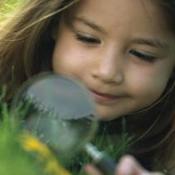It is normal for adolescents to conflict with family members, especially parents. In fact, this transition from obedient, caring, and emotionally attached child to sometimes distant, moody, and rebellious teenager is often seen as a normal stage of development. Adolescents begin to find their own identities, their own sets of friends, and their own interests during the teen years. During this exploratory period, they begin to pull away from the safety of family and assert their own independence as they start their foray into adulthood. But even though moderate conflict is viewed as relatively normal, researchers have raised questions about the effects of conflict on social functioning. In a recent study, Katherine B. Ehrlich of the Department of Psychology at the University of Maryland took this question one step further. Using a sample of 189 adolescents, Ehrlich assessed how parental conflict and peer conflict affected social functioning independently and collectively.
The participants and their two parents, mothers and fathers, were observed as they engaged in conversations about topics that caused conflict. The adolescents were then asked to detail any conflicts in their closest peer relationships. Finally, the participants’ friends were interviewed about the level of social acceptance and general behavior of the participants while in social environments. Ehrlich discovered that although conflict with parents was linked to more aggression and risk taking, this effect was significantly amplified when peer conflicts were occurring simultaneously.
It has been suggested that conflict is a catalyst for social development and that adolescents need to experience disagreements in order to learn how to engage in problem solving and adaptive stress coping strategies. However, Ehrlich believes that when there is too much conflict present in teens’ lives, their resources may become quickly depleted, thus impairing their ability to function socially. It should be noted that the results gathered in this study were only obtained from married, heterosexual parents and were not examined independently. Future work should isolate mother-child conflict and father-child conflict to capture a more in-depth look at the individual influence of each. Additionally, single-parent environments should be examined in relation to parent-child conflict and its effect on social functioning. Ehrlich added, “We encourage researchers to continue using a multimethod approach to explore the ways in which conflict across family and friend relationship contexts influences adolescent development.”
Reference:
Ehrlich, K. B., Dykas, M. J., Cassidy, J. (2012). Tipping points in adolescent adjustment: Predicting social functioning from adolescents’ conflict with parents and friends. Journal of Family Psychology. Advance online publication. doi: 10.1037/a0029868

The preceding article was solely written by the author named above. Any views and opinions expressed are not necessarily shared by GoodTherapy.org. Questions or concerns about the preceding article can be directed to the author or posted as a comment below.

 'Welcome to Your Child’s Brain': A GoodTherapy.org Review
'Welcome to Your Child’s Brain': A GoodTherapy.org Review How to Teach Children Emotional Intelligence
How to Teach Children Emotional Intelligence Ten Complementary Therapies That Can Help Children
Ten Complementary Therapies That Can Help Children

Please fill out all required fields to submit your message.
Invalid Email Address.
Please confirm that you are human.
Leave a Comment
By commenting you acknowledge acceptance of GoodTherapy.org's Terms and Conditions of Use.